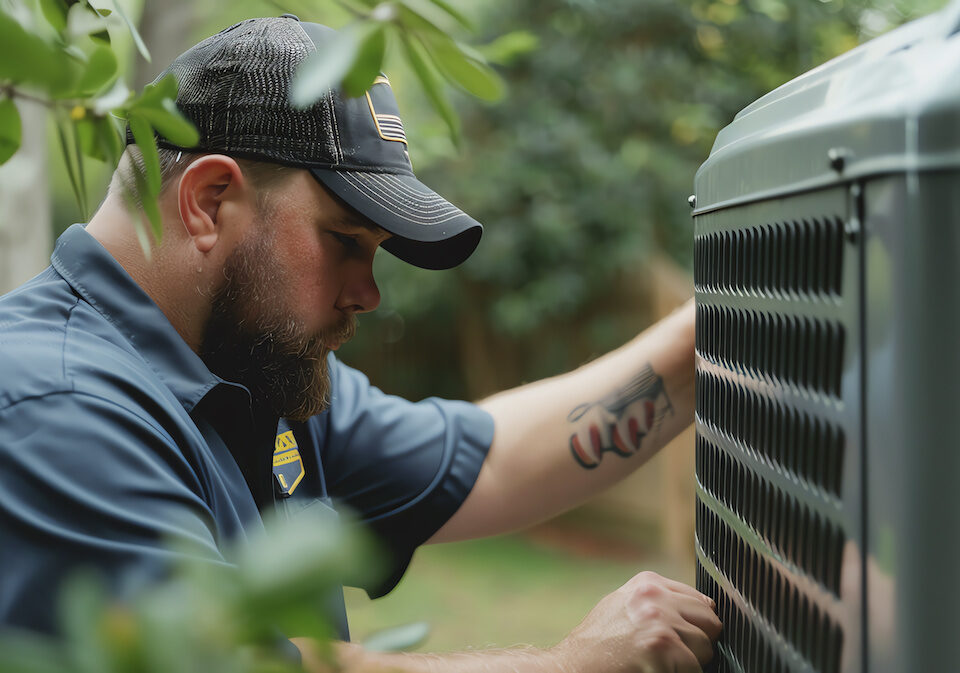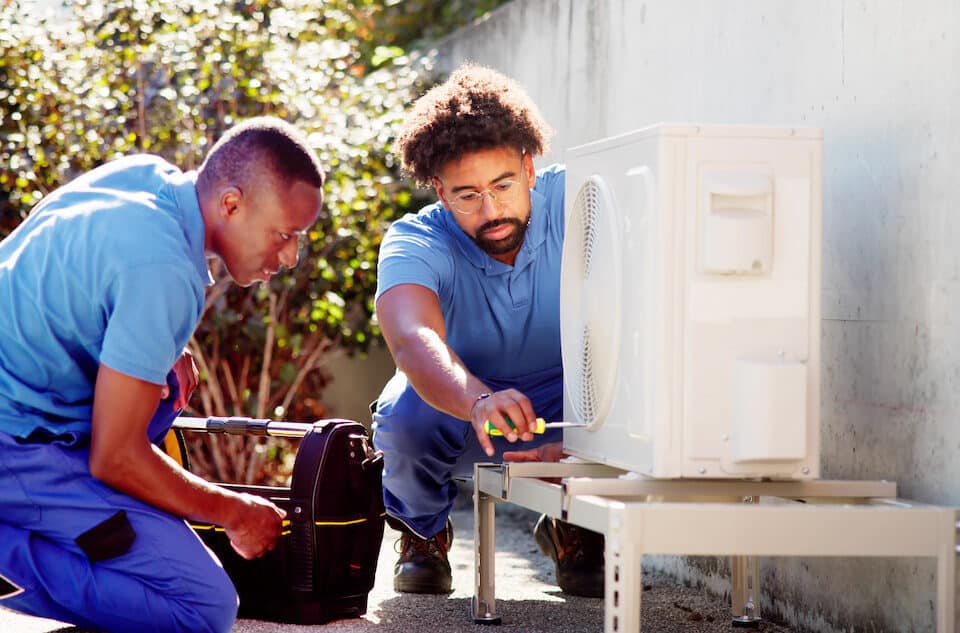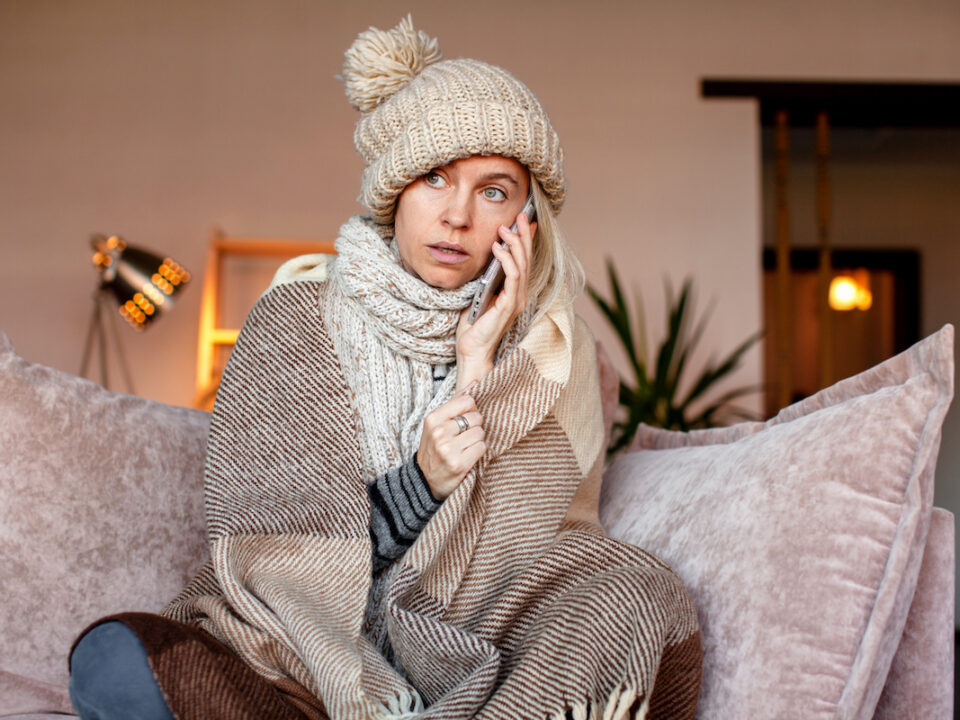Your HVAC System and Allergies in Summer

Allergies in summer are a headache- literally. And when you can’t escape the outdoor allergens, even when retreating to the comfort of your own home, you may never feel relief.
In fact, your home’s HVAC system may be worsening your symptoms. That is, if you are unaware of the proper prevention methods and regular care that help keep summer allergens from polluting your indoor space.
Fortunately, there are many simple solutions to this problem. In this blog from TRUST Heating & Air, we walk you through how your HVAC system can impact the severity of your allergies in summer.
Read on to get familiar with allergens found in the home and how to care for your HVAC system to fight against seasonal allergies.
What Are the Common Indoor Allergies in Summer?
When we think of allergies in summer, we don’t often consider the allergens inside our homes. More likely, you think of the pollen floating around in the outdoor environment. Especially if your allergies in summer are severe, you may avoid going outside during the warmer times of the year altogether.
However, these same allergens are just as likely to be found indoors. That is if you aren’t implementing prevention measures and considering your indoor air quality. And summer is the perfect time for these allergens to thrive due to higher levels of humidity and an increase in temperatures.
The following four allergens are some of the most common in the home.
Pollen: During the warmer seasons, like summer and spring, pollen is hugely abundant in the air indoors and outside. When the weather warms, and flowers begin to bloom, pollen can easily enter your home in multiple ways, including:
- Open doors and windows
- Structural gaps or cracks in the home’s exterior
- On your clothes or shoes after being outdoors
- On your pet’s fur and paws
If you don’t have a high-quality air filter, the pollen is likely being cycled through the room of your home and settling in carpets and furniture. Unfortunately, this is a nightmare for those with pollen allergies because symptoms will never subside.
Dust Mites: The heat of summer also welcomes allergy-inducing pests, like dust mites. These microscopic bugs cause serious allergic reactions and asthma irritation for some people. They hide in fabrics and plush furniture, like pillows, curtains, blankets, and couches.
Mold: Mold and mildew will also exacerbate allergies in summer. These hazardous substances are prevalent in the summer season due to higher humidity levels. Moisture and “nutrients” must be present for mold and mildew to grow. The nutrients mold requires are typically found in dust throughout the home.
It’s essential to maintain a healthy HVAC system to prevent the growth of mold and mildew. The symptoms of the illness these toxins cause are flu-like and can greatly affect your ability to function daily.
Pet Dander: If you have dogs, cats, birds, or any other pet in the home, you are likely familiar with pet dander. This term describes the tiny bits of skin a pet sheds. And some individuals are highly allergic to the proteins found in pet dander. The microscopic shedding easily circulates throughout the home unless the proper methods are in place.

Signs and Symptoms of Allergies in Summer
Allergies in summer can present themselves in different ways depending on the individual. Common reactions include but are not limited to:
- Sneezing and coughing
- Watering, itchy eyes
- Itchy and irritated skin
- Nasal congestion
- Sore throat
- Hives and other skin rashes
- Difficulty breathing
If your symptoms worsen when the AC is running or subside when you spend time away from home, your HVAC system could play a role in the severity of your allergies in summer. In this case, you’ll want to look at your indoor air quality and adopt some tips and tricks to alleviate your symptoms.
Alleviate Allergies in Summer with Your HVAC System
Your HVAC system can absolutely make your allergies worse. However, it doesn’t have to be this way. In fact, taking care of your HVAC system can help ease your symptoms. Ultimately, you want to feel comfortable and like your very best self in your home. So, taking some time to resolve your poor indoor air conditions is the best thing you can do to fight against allergies in summer.
1 | Regularly Replace Your Air Filter
If you experience allergies in summer, you should replace your air filter every 30 days. In general, it is recommended to switch out the filter at least every 60 days. However, if you replace it more often, your indoor air quality is sure to improve.
The best way to determine if you need a new air filter is to look for dust, debris, and discoloration. When your filter appears dirty, it is time to switch it out.
2 | Consider Investing in Quality Air Filters
Furthermore, summer allergies can be relieved by choosing specialized air filters. Certain filters are designed to block allergens that other products do not. Next time you head out to the store to buy a replacement, look for the labels that advertise their ability to block allergy-inducing substances.
They will likely be more expensive but think of it like this- investing in quality filters may allow you to buy fewer allergy medicines that treat your severe symptoms. And at the very least, you’ll be much more comfortable and healthier inside your own home.
3 | Schedule General HVAC Maintenance
Ease allergies in summer by having your HVAC system serviced right before the turn of the season. Professionals will inspect for common allergens, like mold and mildew. Plus, they’ll ensure the system works efficiently and effectively to provide you with the best indoor conditions.
Additionally, we recommend having your HVAC system serviced before winter. Regular maintenance twice a year will help your home remain allergen-free.
4 | Have Your Ducts Cleaned
Similar to regular HVAC inspections, scheduling duct cleanings will remove any allergen buildup in the ducts throughout your home. Mold growth can occur inside air ducts, especially if it isn’t kept up with or your home experiences high humidity levels. We suggest scheduling a duct cleaning every couple of years to best prevent allergen issues.
5 | Maintain Ideal Humidity Levels
The humidity levels inside your home will play a significant role in the severity of allergies in summer. Ideally, the humidity reading on your thermostat should fall between 30% and 50%. Keep in mind that the level is typically higher during the summer than during the winter. Nevertheless, when the home experiences levels too low or too high, allergy symptoms can worsen.
High Humidity Conditions
Not only is excessive humidity sticky and uncomfortable, but pests, mold growth, and other allergy-inducing agents thrive in such environments. If the reading on your thermostat exceeds 50%, it may be worthwhile to invest in an air dehumidifier for your home. These devices work to remove moisture from the air and provide much healthier living conditions.
Low Humidity Conditions
When an indoor environment lacks moisture, it can aggravate allergies in summer. Extremely dry conditions may cause nose, throat, and lung irritation. Air humidifiers are the perfect solution for low-humidity homes because they produce the proper moisture for you and your family to feel comfortable indoors.

TRUST Heating & Air is Here to Help!
We know allergies in summer can be a pain. And you should be able to escape the allergens outdoors when inside your home. Unfortunately, this isn’t always the case.
In order to prevent abundant allergens indoors, you must keep up with your HVAC system and prioritize indoor air quality. Luckily, the team at TRUST Heating & Air can help!
If your summer allergies persist in the comfort of your home, give us a call today. We can inspect your system and provide you with expert tips and tricks to maintain a healthy home and alleviate severe allergy symptoms.
Call on the team you can always trust– TRUST Heating & Air.



